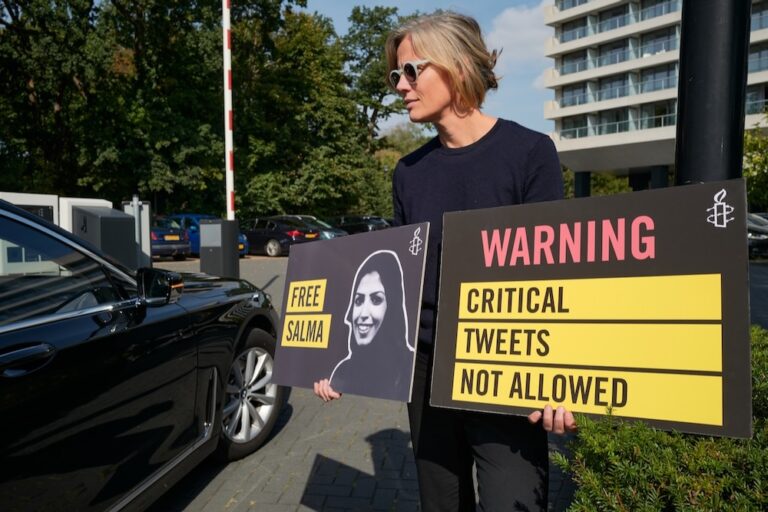(HRW/IFEX) – The following is a Human Rights Watch press release: Saudi Arabia: Reforms Needed to Fight Terror (New York, May 21, 2003) ? Legal and political reforms long promised by the Saudi government should be speeded up in light of the latest anti-terror campaign, Human Rights Watch urged today. In January 2003, on its […]
(HRW/IFEX) – The following is a Human Rights Watch press release:
Saudi Arabia: Reforms Needed to Fight Terror
(New York, May 21, 2003) ? Legal and political reforms long promised by the Saudi government should be speeded up in light of the latest anti-terror campaign, Human Rights Watch urged today.
In January 2003, on its first official visit to Saudi Arabia, Human Rights Watch heard repeatedly from government ministers and other senior officials that major legal and political reforms were underway. Officials cited the new criminal procedure code that gives more rights to detainees and prisoners; efforts to prepare more women for the job market; the formation of worker committees at large companies; and greater protections for migrant workers.
Even the religious police were moderating their activities, Saudi officials said. However, they did concede that enforcement of laws, particularly new laws, remained a problem.
“Saudi officials have been promising the kind of legal reform that is even more important in the context of a major security crackdown,” said Hanny Megally, executive director of the Middle East and North Africa division of Human Rights Watch. “Tougher security measures alone are not a long-term solution.”
Megally urged the Saudi government to combat the threat of terrorism not only with law enforcement measures, but also by addressing factors that breed alienation and violence, including a political system that allows no room for peaceful dissent.
Megally said U.S.-Saudi counter-terrorism initiatives, formalized in a joint working group last year, should include specific human rights improvements to reduce the potential of militants to attract new recruits. U.S. President Bush and other senior officials should publicly advocate that the Saudi government set an agenda and timetable for reforms, Megally said.
A 2001 royal decree regulating the practice of law and the criminal procedure code, enacted in 2002, guarantees the right to a lawyer during investigations and trials. Earlier this month, the Saudi government announced that private human rights groups and an independent national human rights commission were in the process of being established. In a statement read to the kingdom’s 120-member appointed Consultative Council (majlis al-shura) on May 17, King Fahd pledged that the government would “continue our political and administrative reforms, and work for revising our systems and regulations.” The king did not provide details, but added: “We will tighten control on the performance of governmental agencies, broaden the scope of popular participation, and open wider horizons for the work of women within the framework of Islamic teachings.”
Some Saudis have been pushing for reform. A petition signed by 104 Saudi men was presented to Crown Prince Abdullah in January 2003. The petition called on the government to undertake initiatives signaling it is “serious about reform.” The petition urged amnesty for all political prisoners, and an end to arbitrary practices restricting public debate, such as travel bans, threats of imprisonment, dismissal from jobs, and publication bans.
Other recommendations included an elected national legislature, an independent judiciary in practice as well as theory, guarantees of freedom of expression, association, and assembly, and “a larger role for women.” The signatories called for national dialogue between the rulers and the ruled, premised on an end to the kingdom?s “culture of exclusion.”
The petition also advocated dissemination of human rights culture and legalization of independent civic institutions of all kinds.
Human Rights Watch urged that suspected militants arrested in the anti-terror campaign not be subjected to prolonged incommunicado detention or tortured to elicit information or confessions. If militants are charged and tried, they should be provided with all due process guarantees rights pursuant to Saudi and international human rights law, including the right to legal assistance and fair trials.


